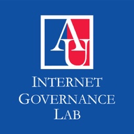Dr. Erica Basu
By Sarah Palaia | April 17, 2020
How do you protect the data and privacy of half a billion internet users in the world’s largest democracy? India recently undertook that challenge, and SOC PhD graduate Erica Basu studied the process as it unfolded. Her research reveals how conflict and cooperation between government and non-governmental actors, and their use of communication platforms to inform and influence public opinion, shaped data and privacy laws.
For Basu, looking at her home country was an obvious choice—she already understood many of the factors, cultural and political, that would influence how India approached internet governance. By making a case study of the effort to write a new data and privacy law, she hoped to understand how much influence civil society organizations could have in the process. More generally, she was interested in how actors in a democracy use a “diverse range of communication tactics” as levers to intervene in policymaking.
Basu’s research found that all actors, including civil society, government and internet companies took advantage of communication channels to inform and influence public opinion. They used both traditional and digital media extensively, from town halls to Twitter. The Indian government, for its part, used digital platforms to communicate about the proposed law and to invite outside parties to comment on proposals.
Basu also found that the policies advocated by civil society organizations were likely influenced or constrained, at least in part, by the priorities of the private sector companies funding them. Private sector funding of think tanks, and partnerships between the government and private sector, created substantial overlapping interests that were not transparent. She said, “When you research the funding flow then you realize that…private sector money is being funneled through foundations.”
Finally, she argues that asymmetries of power limited communication and reduced civil society’s influence on policy. While the government used both digital and non-digital communication channels extensively, it chose not to publish public comments, breaking with established practice. In addition, the government used concerns about national security, law and order as a rationale for shutting down some online discussion, which led to a “narrowing of the civil society space and quelling of dissent.” She found that, ultimately, the Indian government holds policymaking power. In spite of opposition, the proposed law includes expansive rights for the government.
Basu’s work offers valuable insights for anyone studying issues of internet governance. Lessons learned from the India case study lead her to recommend, above all, that researchers “always look at the power asymmetries and the power structures between different actor groups.” She added, “I think that is a good lens to have when you’re studying any kind of technological issue and how it impacts societies.”
Before entering the PhD program, Basu also completed a Master’s degree at SOC. She credits the scholarship and generous teaching style of Professor and Interim Dean Laura DeNardis for drawing her into the program: “She inspired me to look at the internet as the next frontier where this was going to be the main space for interaction … as citizens both of our own countries and as global citizens.”

